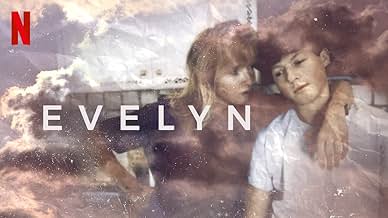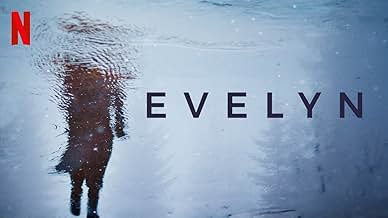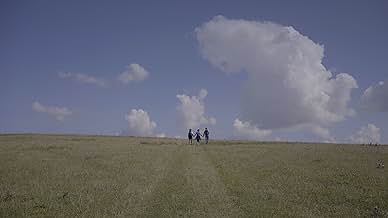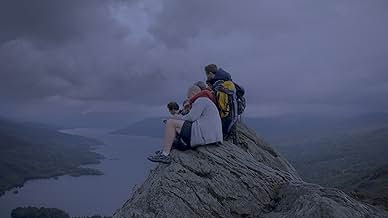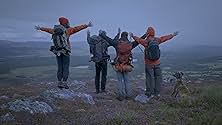Family hikes through British landscapes their brother Evelyn once walked, breaking decade-long silence about his suicide at age 22 following schizophrenia diagnosis.Family hikes through British landscapes their brother Evelyn once walked, breaking decade-long silence about his suicide at age 22 following schizophrenia diagnosis.Family hikes through British landscapes their brother Evelyn once walked, breaking decade-long silence about his suicide at age 22 following schizophrenia diagnosis.
- Awards
- 2 wins & 1 nomination total
Featured reviews
So sad and so well made showing the devastation of those touched by suicide.
Well done all of you
Powerful heartfelt trauma of a family dealing with tragedy. Fabulous film of a courageous way to cope with loss. A must watch.
My love and deep respect to all involved.
My love and deep respect to all involved.
As Netflix describes this documentary, it is truly emotional from beginning to end. In the beginning we find out that the son and brother of a British family committed suicide 13 years earlier. The movie is not only about remembering and honouring Evelyn, who took his own life, but showing the long struggle of the family - especially Evelyn's siblings - and how coping with such an enormous loss seems to be almost impossible for the people who loved him the most. This movie is a journey from fear, silence and maybe even denial to something that slowly develops into acceptance, talking and coping with the loss. Apart from the camera work that was from time to time very poor, and therefore took much more space in the film than it should have , the movie is so beautiful and painful one will not easily forget about Evelyn and his family. The viewer is being reminded of all the good that Evelyn brought to people's lives as well as the agony he left behind. There's a bittersweet balance between these two perspectives in this film. It is also acknowledged - both during and after the movie - how sadly common suicides are and how the stigma should be reduced. Talking about suicide and personal experiences around the subject is brilliantly being "passed on" to the viewer as something that should and needs to be done. "Being weak is ok" seems to be one of the mottos of the movie - and that is a wonderful way to send out support to other people who might be going through the same thing in their lives and/or social circles.
It's a heavy account of how one death can lead to a domino of fractures within a family, and how they try to come to terms with it. It can serve as a reference for those living in a society in which people hesitate to confront and express their emotions.
All good.. but oh boy, their father, Andreas, is a classic case of a narcissistic, patriarchal SWM. It's like a masterclass of how to turn everything into being about himself. From the get-go, he condescendingly categorizes which of his children ressembles which parent (no surprise which he thinks is superior). Then, he threw a fit at a restaurant about insignificant things (hence drawing attention to himself). Shortly after that, he claimed that according to a doctor in Germany, his son wouldn't have killed himself had he been placed under their care there, then attempted to clarify that he didn't believe it'd make a difference (ok, then why stirred the already messed up pot like that?). He also asserted that he's not trying to blame anyone, but kind of subtly hinted that his daughter should've looked around the house when his brother was't found in the house. When his other son was being emotionally vulnerable with a stranger, he said: "Brilliant, I wouldn't have done that" (the majestic "I" is peppered throughout everything that he said, and you don't really feel like it's a complement, more like an unsolicited judgment). And even after all these, he demanded that his children show him respect.
All good.. but oh boy, their father, Andreas, is a classic case of a narcissistic, patriarchal SWM. It's like a masterclass of how to turn everything into being about himself. From the get-go, he condescendingly categorizes which of his children ressembles which parent (no surprise which he thinks is superior). Then, he threw a fit at a restaurant about insignificant things (hence drawing attention to himself). Shortly after that, he claimed that according to a doctor in Germany, his son wouldn't have killed himself had he been placed under their care there, then attempted to clarify that he didn't believe it'd make a difference (ok, then why stirred the already messed up pot like that?). He also asserted that he's not trying to blame anyone, but kind of subtly hinted that his daughter should've looked around the house when his brother was't found in the house. When his other son was being emotionally vulnerable with a stranger, he said: "Brilliant, I wouldn't have done that" (the majestic "I" is peppered throughout everything that he said, and you don't really feel like it's a complement, more like an unsolicited judgment). And even after all these, he demanded that his children show him respect.
I happened upon this as a Netflix suggestion and oh my gosh, I was gripped from the start. Mental illness and suicide are never easy subjects to discuss, let alone invite the world into your pain. This film was real and tender and intensely gracious in its message of profound grief and deeply felt loss within a family. Powerful reminder of how our lives touch others.
Did you know
- TriviaThe poignant quote recited at the end of the film is an excerpt from The Smoke Jumper by Nicholas Evans
- How long is Evelyn?Powered by Alexa
Details
- Runtime
- 1h 40m(100 min)
- Color
Contribute to this page
Suggest an edit or add missing content


